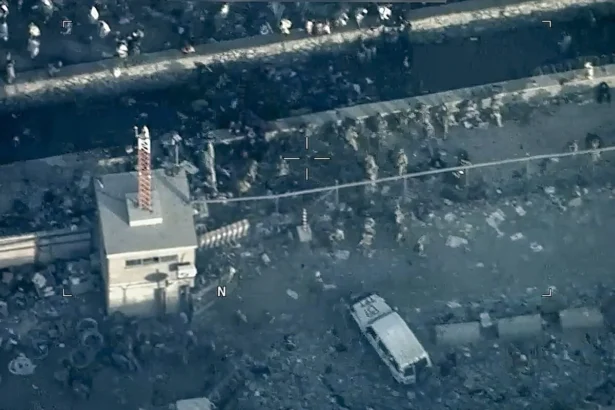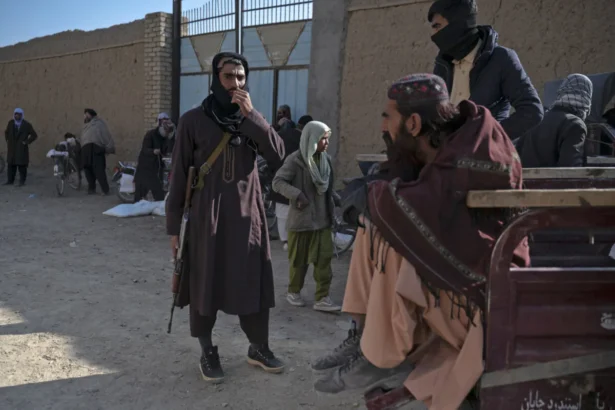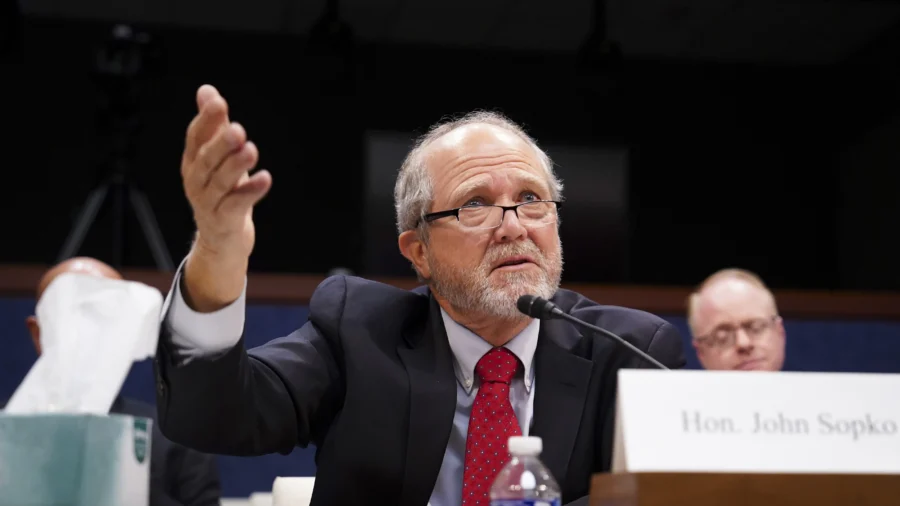The State Department in December revised its policy to now seek “meaningful dialogue” with the Taliban, 30 months after its calamitous withdrawal cost 13 U.S. service members, and hundreds of Afghans, their lives in an ignoble end to America’s 20-year war in Afghanistan.
The Biden administration is doing so despite knowing there’s no such thing as “meaningful dialogue” with the Taliban, State Department officials tell investigators with Special Inspector General for Afghanistan Reconstruction (SIGAR) John Sopko’s office in a 154-page booklet-type report released Feb. 1.
The report maintains the State Department hopes to “eventually work on contingency planning, resource dedication, and facility identification for a possible consular return to Kabul … when circumstances and policy permit,” a signal it will soon request spending increases to gild a broadened path.
SIGAR’s report maintains the State Department is doing so after shrugging away its own admission “there was no indication the Taliban were devoting any significant portion of their budget to the welfare of the Afghan people,” nor any likelihood that any “meaning dialogue” would change that any time soon.
The revised policy maintains the best way to advance U.S. objectives is to “build functional relationships” with the Taliban to “ensure Afghanistan is never again used for attacks against the United States and its allies, and to reduce Afghanistan’s dependency on U.S. assistance.”
The SIGAR report notes the State Department adopted its new policy a month after a United Nations “independent assessment” warned the international community’s refusal to engage with the Taliban was not working and “identified regional stability as a common goal for the Taliban and international community and urged all stakeholders to use that shared desire as a basis for further conversation.”
SIGAR was created in 2008 to track how $147.23 billion in American taxpayer contributions for Afghan relief and reconstruction since 2002 is spent, including the $11.21 billion in assistance American taxpayers may be surprised to learn they’ve continued to contribute since the Biden administration’s abrupt August 2021 withdrawal.
SIGAR’s 62nd Quarterly Report to Congress, which spans the last quarter of 2023, Oct. 1–Dec. 31, was released Feb. 1. SIGAR’s third-quarter 2023 report, spanning July 1–Sept. 30, was released Oct. 30.
Two weeks after the third-quarter 2023 filing, Mr. Sopko, the Obama-appointed inspector general who has been with the office since its founding and has led since 2012, appeared before the House Foreign Affairs Committee.
In his Nov. 14 testimony, Mr. Sopko said his office has struggled to get reasonable accounting from the State Department in how it handled a significant component of the near-$150 billion American investment in Afghanistan.
“The State Department has basically obfuscated, delayed reports … ordered their employees not to talk to us,” he said. “We do not know, period” how humanitarian assistance is being used, but evidence from multiple sources, including the U.S. Agency for International Development, indicates “the Taliban is diverting or otherwise benefiting” while intended beneficiaries are not.
Because the United States does not recognize the Taliban-led Afghan government, it allocates humanitarian aid through international nongovernmental organizations and United Nations agencies.
“There are no good answers. There’s no good alternatives when providing humanitarian assistance in an environment like Afghanistan, only trade-offs,” Mr. Sopko testified.

Biden’s Signs of ‘Weakness’
Mr. Sopko is certain to be requested to testify before House committees in the coming weeks by Republican chairs eager to pound away at the Biden administration’s botched August 2021 Afghanistan withdrawal that, they say, continues to convey a “weakness” adversaries take advantage of.
Republican Reps. Brian Babin (R-Texas), Brian Mast (R-Fla.), Jefferson Van Drew (R-N.J.), and Mike Enzell (R-Miss.) echoed that sentiment during a Jan. 30 House Transportation and Infrastructure Committee’s Coast Guard and Maritime Transportation Subcommittee hearing on “the Red Sea menace” posed by the Houthis.
“I believe President [Joe] Biden failed our country” when he “grossly mishandled our Afghanistan withdrawal,” Mr. Van Drew said, calling it “a sign of weakness” that has emboldened adversaries since.
President Biden “didn’t prevent Russia’s attack on Ukraine. We could have prevented it. It was a sign of weakness. And you were not able to prevent Iran-backed proxies from attacking our ally, Israel, and all of our troops in the Mideast,” he said. “Again, it’s a sign of weakness.”
“Past weakness by President Biden continue to strengthen terrorist organizations and encourage global attacks,” Mr. Enzell said.

Dire Circumstances
The $11.21 billion is American assistance issued since August 2021 includes nearly $2.63 billion in Afghanistan humanitarian and development aid funneled indirectly into the country by international NGOs.
Asked if any of that American assistance, or any aid from anywhere, is having an impact—if life has gotten better or worse for Afghans over the last 30 months since the Taliban took over and the United States left—SIGAR’s 200 auditors, attorneys, investigators, and inspectors offered a brief bleak assessment.
“Although there is improvement in a few areas such as counter-narcotics, most social, economic, and humanitarian indicators are clearly worsening,” the report states.
The United Nations Office for the Coordination of Humanitarian Affairs predicts 23.7 million Afghans will need humanitarian support over the next year, the report notes.
U.N. Under Secretary for Humanitarian Affairs Martin Griffiths told SIGAR that cash-strapped U.N. agencies are making “increasingly painful” decisions to cut life-saving food, water, and health programming in Afghanistan.
The devolving scenario is exacerbated by Pakistan’s reverse-migration, mass deportation plan. In late 2023, Pakistan implemented its Illegal Foreigners Repatriation Plan to deport as many as 1.3 million undocumented Afghans.
Nearly 500,000 have returned to Afghanistan since September, “either through deportation or coercion, straining existing resources,” SIGAR said.
U.N. Afghanistan Special Representative Roza Isakovna Otunbayeva told SIGAR, “The returnees are the poorest of the poor; 80,000 of them have nowhere in Afghanistan to go.”

Increasing Abuses
The U.N. Assistance Mission in Afghanistan told SIGAR the Taliban “are arbitrarily arresting and detaining women and girls for alleged dress code non-compliance.”
The U.N. alleges the Taliban’s draconian denial of basic human rights for females is directly responsible for women and girls being the predominate victims among the 1,400 killed in October’s Herat Province earthquakes.
The U.N. “found women and girls comprised the majority of earthquake casualties,” SIGAR states, its report concluding, “Taliban policies restricting women and girls to their homes caused a higher death toll and injury rate among that population, and that women and girls may have been left more vulnerable because they had less access to information about the earthquake and earthquake preparedness.”
The SIGAR report includes U.N./NGO accounts of 4,519 “grave violations” against 3,545 children in Afghanistan the last three months of 2023, of unexploded ordinance killing or maiming an average 60 people a month, and the emergence of “wild poliovirus” virus that could imperil global eradication efforts.
In one way, life has improved since the Taliban assumed control of Afghanistan. As of late 2023, Burma has eclipsed it as the world’s top opium producer.
Since banning cultivation in 2022, the Taliban has “nearly eradicated poppy cultivation” in Afghanistan, SIGAR’s report notes, citing documentation by the State Department and U.N. Office on Drug and Crime.
From The Epoch Times


